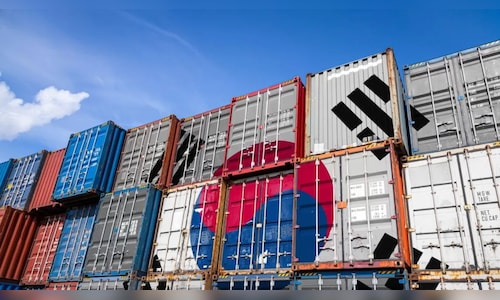In headline figures distorted by more working days compared with last year, exports grew 16% while overall imports increased by 7.7%, resulting in a trade surplus of $804 million. The lunar new year holidays came in January this year, whereas a year earlier they were in February. Exports to the US rose 16% and those to China increased 13.6%, according to customs data unadjusted for calendar differences. Semiconductor shipments grew 22.1%, while automobile exports increased 40.3%.
Exports represent the biggest component of South Korea’s economy, led by shipments of semiconductors. A global rush to develop artificial intelligence technology has been a boon for companies like SK Hynix Inc. and Samsung Electronics Co. that produce advanced memory chips.
Their outlook is turning increasingly gloomy after Trump unveiled a series of tax initiatives following his inauguration in January. The risk of a global trade war has become dangerously real after the president announced 25% levies on steel and aluminum imports that will take effect in March and reciprocal tariffs on numerous trading partners that are expected to hit in April.
“The uncertainty is extremely high and the primary cause is the impact of Trump’s tariff policies on Korea’s export industries,” said Lee Seung-suk, a researcher at the Korea Economic Research Institute. “There are considerable concerns in sectors like steel and automobiles. Unless there are measures to ease the tariffs, a decline in exports this year seems inevitable.”
The trade risks add to concerns for an economy hamstrung by stagnant consumption and political turmoil that has weighed on consumer confidence. After President Yoon Suk Yeol imposed martial law briefly in December, he was arrested on charges of insurrection, and the Constitutional Court is deliberating whether to finalize his ouster.
South Korea’s deputy trade minister visited Washington this week and asked the US to exclude his country from its tariff plans, according to a government statement. He highlighted a free trade agreement in place between the two nations and stressed investments South Korea has made in the US, it said.
With headwinds for the economy intensifying, the central bank last month cut its growth forecast for this year. The Bank of Korea’s board is set to meet for an interest-rate decision next week. The BOK pivoted to an easing cycle with a rate cut in October and followed that with another reduction in November. Weak export growth is a concern for the central bank given the economy’s heavy reliance on trade. South Korean companies are widely embedded across global supply chains, including automobiles, rechargeable batteries, shipbuilding and refined oil.

